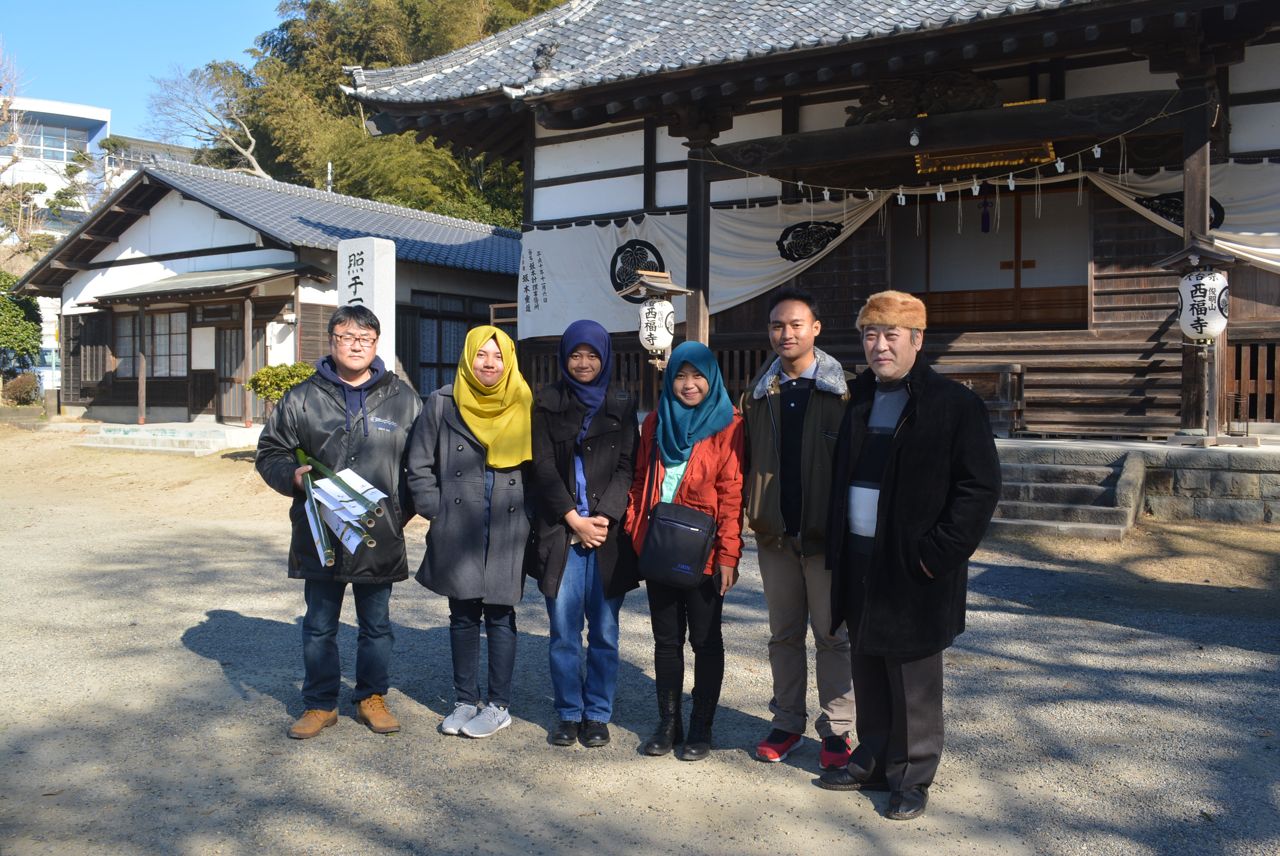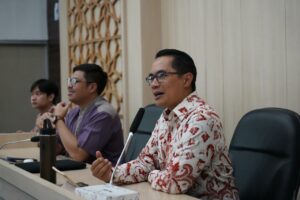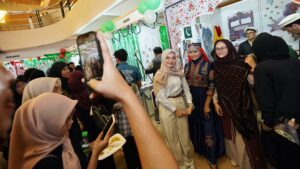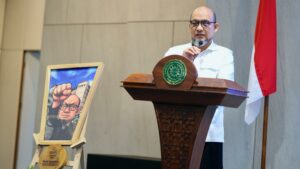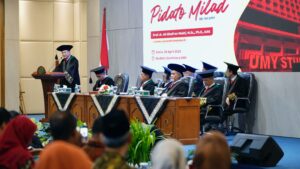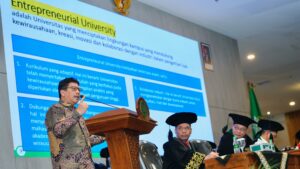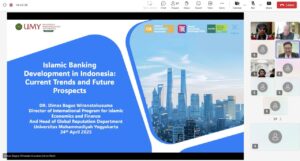Japanese Education Department (PBJ) of Universitas Muhammadiyah Yogyakarta (UMY) encouraged the students to enhance their skills. For instance, four students of PBJ of UMY, namely Malida Putri, Rizki Maulina Handini, Syemi Harianti Jayanti dan Tri Joko Purboyo joined Japanese Socio-culture Internship Program in Hoshiimo company, Hitachinaka city, Ibaraki prefecture, Japan.
The internship program was conducted from 9 January to 7 February 2016. Head of PBJ of UMY, Sonda Sanjaya, S.S., M.Pd., stated that the program was cooperation between PBJ of UMY and Oarai International Exchange Academy. “The party of Oarai International Exchange Academy found a internships place and dormitory, and scheduled training for the students,” Sonda told in an interview on Thursday (11/12).
Sonda said that the students work five days a week, and eight hours a day, and they learned Japanese for other hours. On Saturdays and Sundays, they had study tour to Junior High School of Migawa, and University of Ibraki in Mito city. “They did have not only an internship program, but also study tour and Japanese training,” Sonda informed.
Malida conveyed that during their visit in Junior High School of Migawa they presented Indonesia to the students. They acquainted Indonesian culture and traditional games. “We also introduced UMY to them,” Milda said. Besides, they had campus and met foreign students at University of Ibaraki.
The Japanese Socio-culture Internship Program is the first cooperation program between PBJ of UMY and Oarai International Exchange Academy. Sonda expected that the program could be an annual program of PBJ of UMY. One of the recruitments to join the program was that the students must be minimum semester 3, and had level N4 of Japan-Language Proficiency Test (JLPT). “Having the internship program in Japan, I hope that the students can see immediately Japanese people’s performance particularly when they have a break during working. The students can also communicate with the people so that the students can enhance their Japanese proficiency.
The other expectation is that, before the students graduate, they can internalize the Japanese culture, and obtain international experience. Therefore, they will be more motivated to learn and be enthusiastic about achieving their dream to visit Japan. “The internship may show the students Japanese people’s performance that the people are well known as hard workers. They students may imitate the people, increase their discipline in working, enhance their Japanese proficiency, and comprehend educational system in Japan,” Sonda wished.
One of the internship participants, Try Joko Purboyo, admitted that he could understand deeper Japanese habits, culture, working performance, and discipline. He told that the experience drove him to pursue his master in Japan. “Japanese people are always all out in doing something, and they never give up. It motivates me to always endeavor to achieve my dream,” Tri ended.
